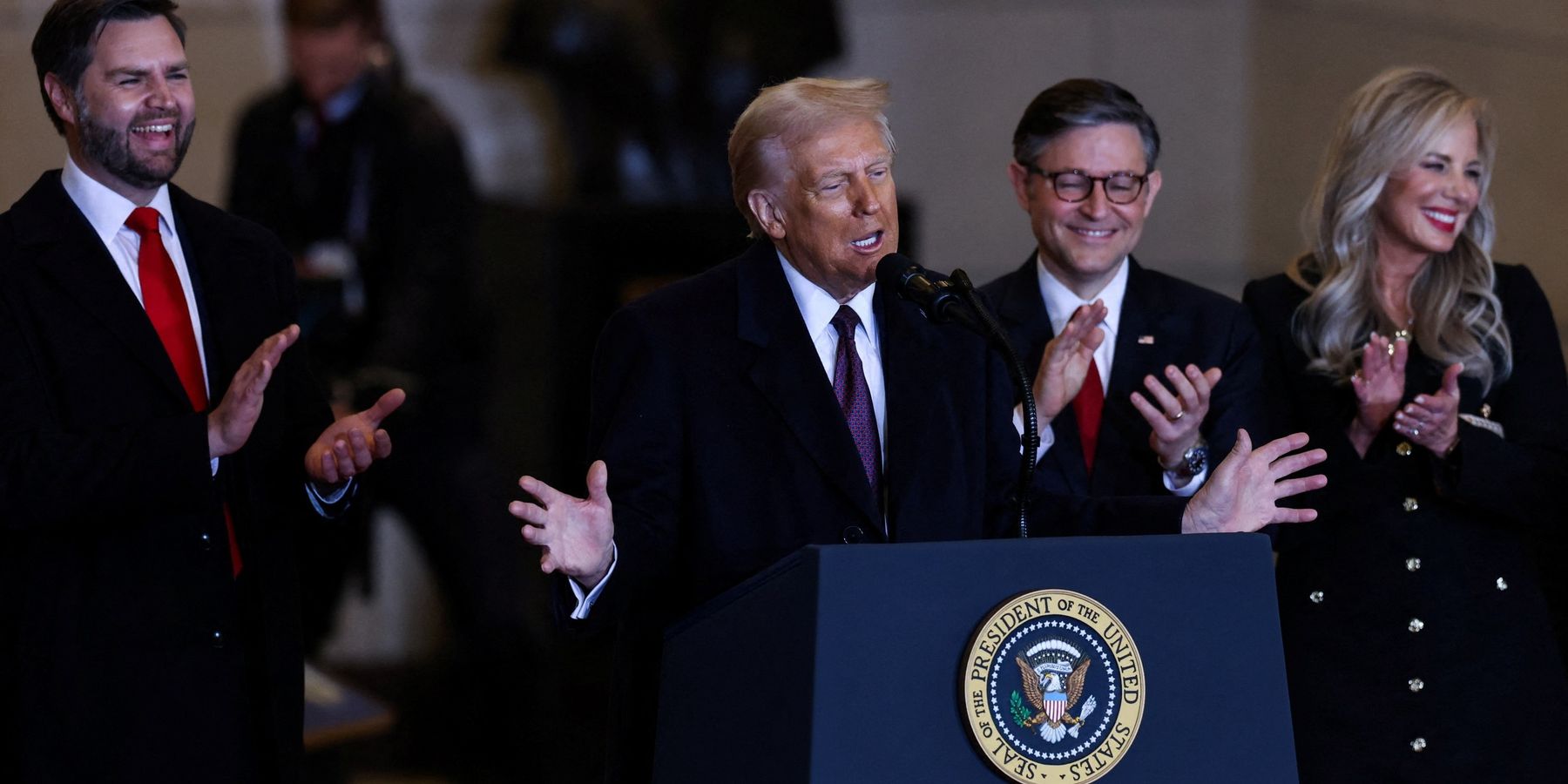In his inaugural speech Monday, President Donald Trump pledged to build "the strongest military the world has ever seen." It was just one note in a broader composition about restoring confidence and pride in the country — "the start of a thrilling new era of national success."
The newly sworn-in 47th president — his second time since 2017 — did not dwell on specific foreign policy aspirations, but instead weaved them generally into his overall theme of an "America First" era, conjuring the spirits of Ronald Reagan and Teddy Roosevelt and largely ignoring the last 20 years in which the U.S. was largely embroiled in failed wars, proxy or otherwise.
We will measure our success not only by the battles we win, but also by the wars that we end, and perhaps most importantly, the wars we never get into.
My proudest legacy will be that of a peacemaker and unifier. That’s what I want to be, a peacemaker and a unifier. I’m pleased to say that as of yesterday, one day before I assumed office, the hostages in the Middle East are coming back home to their families. Thank you.
America will reclaim its rightful place as the greatest, most powerful, most respected nation on Earth, inspiring the awe and admiration of the entire world.
For Trump, "our power will stop all wars and bring a new spirit of unity to a world that has been angry, violent and totally unpredictable."
The new "heights of victory and success" will not only mean this kind of peace abroad, but winning what he sees are specific battles at home (against the "invasion" of "criminal aliens") and in the hemisphere (taking back Panama Canal) and pursuing "manifest destiny" (planting the flag on Mars via newly invigorated Space exploration, nod to Elon Musk).
Trump announced that one of his Executive Orders today would be to declare a national emergency on the nation's southern border, which may mean the expanded deployment of National Guard and/or U.S. troops. Since National Guard troops have been patrolling the border more or less since the George W. Bush administration, it is not clear in what capacity and how many soldiers may be deployed.
In addition:
"Under the orders I signed today, we will also be designating the cartels as foreign terrorist organizations. And by invoking the Alien Enemies Act of 1798, I will direct our government to use the full and immense power of federal and state law enforcement to eliminate the presence of all foreign gang criminal networks, bringing devastating crime to U.S. soil, including our cities and inner cities.
As commander in chief I have no higher responsibility than to defend our country from threats and invasions, and that is exactly what I am going to do. We will do it at a level that nobody has ever seen before."
This could unleash a new 'drug war' on border areas. He did not mention whether he would be sending Special Forces or "kill teams" inside Mexico, which had been part of an ongoing conversation/debate since it was raised by himself and Republican candidates throughout the presidential campaign.
Trump reiterated his intention to "take back" the Panama Canal, though he did not say how that would be done. According to author Joanna Rozpedowski, "the Neutrality Treaty between Panama and the United States signed on September 7, 1977 guarantees the Panama Canal's permanent neutrality, fair access to the Canal for all nations as 'an international transit waterway,' and prohibits foreign military presence in Panamanian territory, with Panama retaining sole operational and administrative control. The United States, however, has reserved the right to use military force to defend the Canal's neutrality."
In his speech Monday, Trump asserted that somehow the 1977 agreement had been "broken."
We have been treated very badly from this foolish gift that should have never been made. And Panama’s promise to us has been broken. The purpose of our deal and the spirit of our treaty has been totally violated.
American ships are being severely overcharged and not treated fairly in any way, shape, or form. And that includes the United States Navy. And above all, China is operating the Panama Canal, and we didn’t give it to China, we gave it to Panama. And we’re taking it back.
He did not mention Greenland, which he has made it clear he wants Washington to buy for strategic reasons, but said clearly that "the United States will once again consider itself a growing nation, one that increases our wealth, expands our territory, builds our cities, raises our expectations and carries our flag into new and beautiful horizons." He said he would "restore the name of a great president, William McKinley, to Mount McKinley, where it should be and where it belongs" and noted his responsibility for seeding the creation of the Panama Canal before his assassination in 1901. McKinley was also known as a great imperialist/expansionist presidency, under which Hawaii, Guam, Puerto Rico, and the Philippines were annexed.
Trump believes that the United States can achieve peace on one hand, and respect and admiration on the other through all of these things. "America will soon be greater, stronger and far more exceptional than ever before." A different take on a more humble foreign policy for sure. War however, he insists, is a dead end for the kind of "golden age" he envisions. And that's a bit different too. Let's hope he can get us there, peacefully.
- 'America First' meets Greenland, Taiwan, and the Panama Canal ›
- The US will have a Happy New Year if Trump takes 4 pieces of advice ›
- Hegseth confirmed: This is where we find out his true mettle | Responsible Statecraft ›
- Trump the 'peacemaker' faces many obstacles | Responsible Statecraft ›
















